Borneo, one of the world’s largest islands, is home to a rich tapestry of indigenous cultures. Among the most fascinating of these cultures are the Dayak tribes, whose history, beliefs, and way of life are deeply tied to the island’s dense rainforests, majestic rivers, and stunning landscapes. The Dayak tribes of Borneo are a diverse group of people with distinct languages, traditions, and customs, yet they share a common respect for the natural world and an unbroken link to their ancestral roots.
The Dayak people are the indigenous tribes of Borneo, an island split between three countries: Indonesia, Malaysia, and Brunei. While the term “Dayak” is often used collectively, it refers to a variety of distinct ethnic groups that share certain cultural traits. The term itself is believed to have been used by Malay and other groups to describe Borneo’s indigenous peoples, and it encompasses a wide array of tribes with varying languages, traditions, and ways of life.
The Dayak tribes are diverse, and some of the more well-known groups include:
While each tribe has its own unique characteristics, the Dayak people share commonalities in their animistic beliefs, their communal living in longhouses, and their respect for nature.



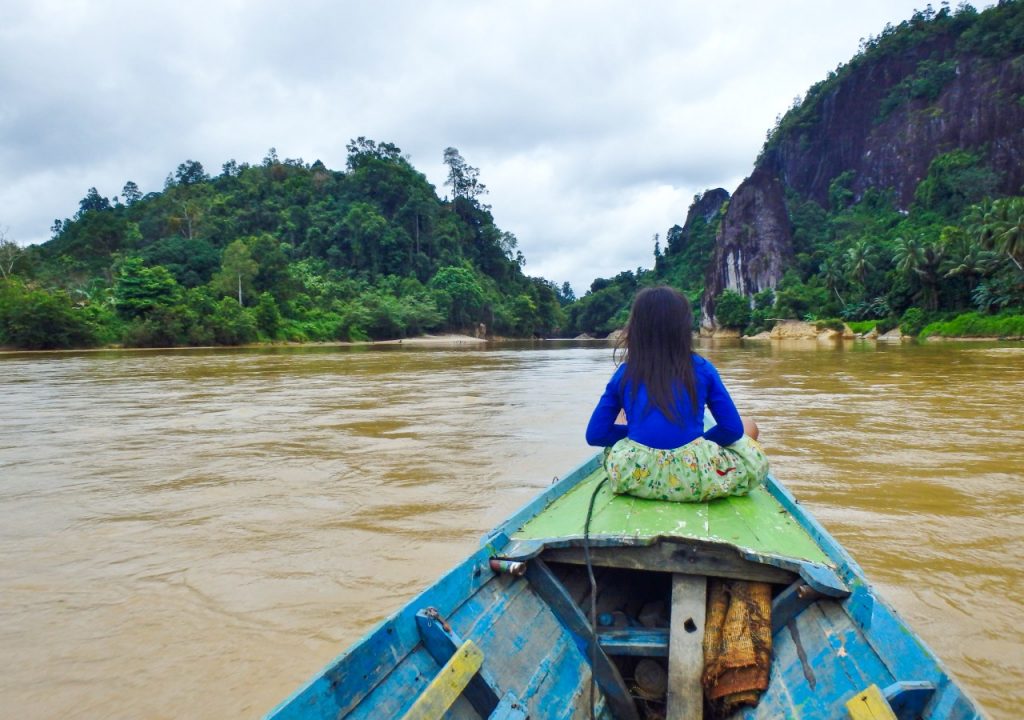
The history of the Dayak people dates back thousands of years. It is believed that the Dayak people originally migrated from mainland Southeast Asia, settling in Borneo around 3,000 years ago. These early settlers developed unique cultural practices shaped by the geography of Borneo, from its dense rainforests to its winding rivers.
One of the most well-known aspects of Dayak history is their practice of headhunting, which was a part of their warrior tradition. Headhunting was more than just an act of war; it was an important ritual in their belief system, aimed at capturing the spiritual power of their enemies. The Dayak believed that by severing the head of an enemy, they could capture their soul and gain spiritual strength, protection, and prosperity.
This practice was not only about conquest; it was a rite of passage for young men seeking to prove their bravery and gain respect within the tribe. The head was often preserved and placed in a sacred space within the longhouse or used in ceremonial rites.
However, with the arrival of colonial powers in the 19th and 20th centuries, the practice of headhunting began to wane, especially with the influence of missionary activities and colonial laws. Today, the Dayak people no longer practice headhunting, but it remains an integral part of their historical and cultural identity.
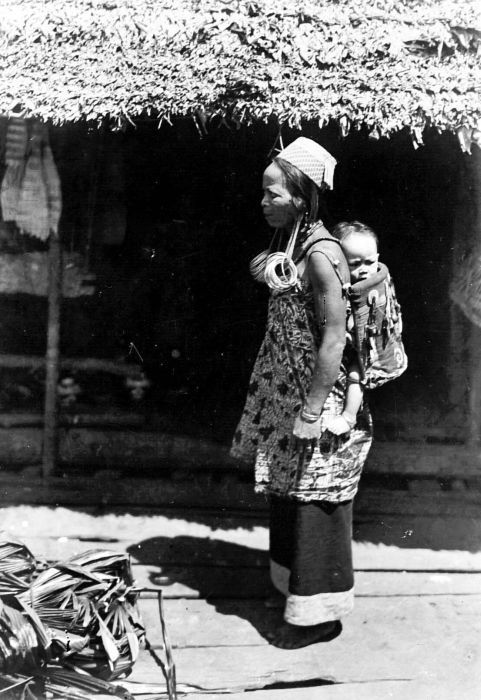
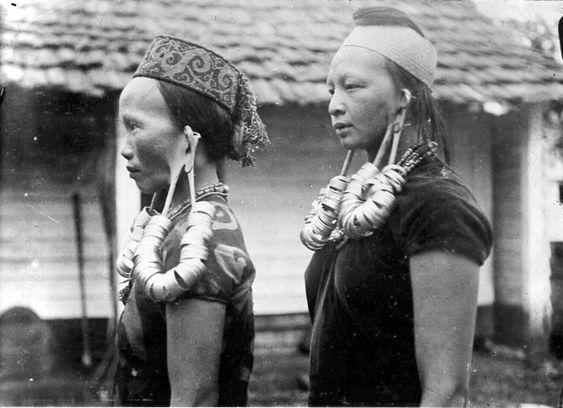
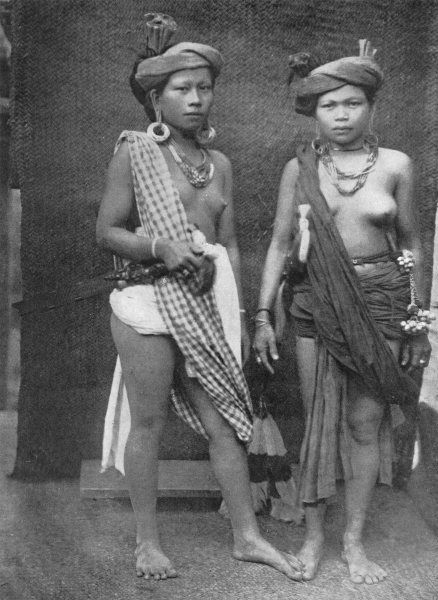
The arrival of European colonizers in Borneo during the 19th century, primarily the British and Dutch, had a significant impact on the Dayak tribes. These colonial powers imposed their own systems of governance, religion, and trade, which often clashed with the Dayak’s traditional ways of life.
Despite this, the Dayak tribes retained much of their cultural heritage, including their animistic beliefs, community-driven lifestyle, and deep reverence for nature. In the post-colonial era, the Dayak people of Borneo have worked to preserve their traditions while adapting to the challenges of modernity.
The Dayak people follow a form of animism, believing that all elements of nature, including animals, trees, and rivers, possess spirits. This spiritual connection to the natural world is at the core of their daily life, rituals, and worldview.
The Dayak hold numerous ceremonial practices throughout the year, marking significant events in their lives. These rituals are intended to honor spirits, seek blessings for fertility and harvest, and ensure protection from evil forces.
Gawai Dayak is one of the most important festivals celebrated by Dayak communities, especially the Iban. Held annually at the end of the rice harvest (usually in May or June), this festival is a time for offering thanks to the gods and spirits for a bountiful harvest. The celebration includes dances, music, feasts, and prayers for future prosperity. It is an essential cultural expression of Dayak communal life.
In addition to harvest celebrations, the Dayak hold elaborate death rituals. The death of a loved one is seen as a transition to another world, and the spirits of the departed must be honored with specific rites to ensure a peaceful journey to the afterlife.
Many Dayak longhouses have a spirit house where offerings are made to appease spirits and ensure the safety and wellbeing of the community. This sacred space is usually located in the central part of the longhouse, and it is here that the most important rituals are performed.
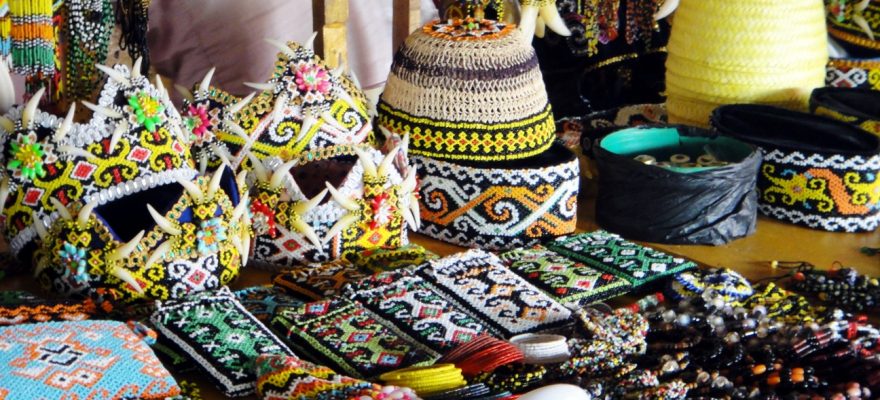
The longhouse is the traditional home of many Dayak tribes. These large, wooden structures can be several hundred feet long and are designed to house multiple families. Built on stilts to protect from flooding, the longhouse is more than just a physical shelter—it is the center of Dayak community life.
Inside the longhouse, each family has its own designated space, but the communal areas, like the central hall or ruai, are shared for eating, socializing, and celebrating. Longhouses are also important social structures, where decisions are made, and conflicts are resolved through community consensus.
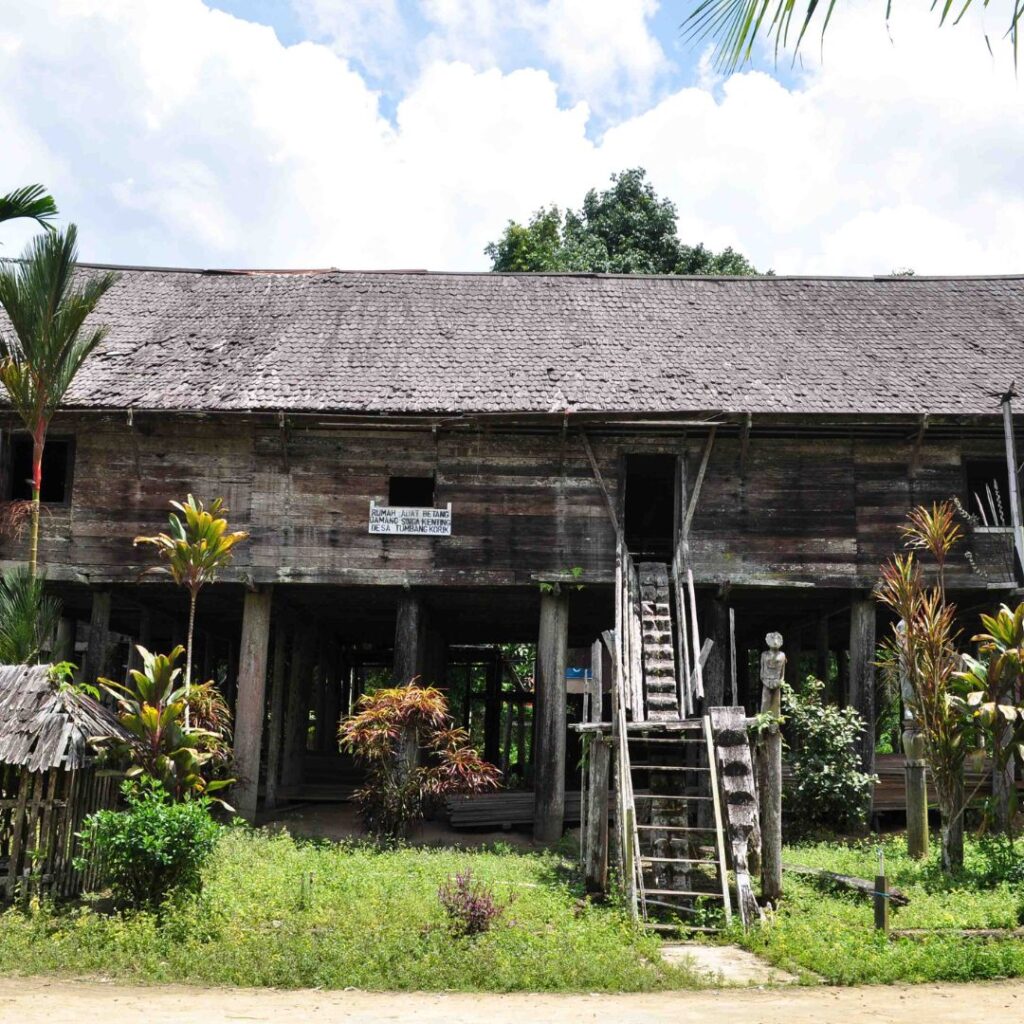
The Dayak people are traditionally subsistence farmers, relying heavily on agriculture for their survival. Rice farming is a central part of their life, with the harvest season being marked by the Gawai Dayak festival. Most Dayak communities practice slash-and-burn agriculture for rice planting, though some tribes have moved towards more modern farming methods.
In addition to rice cultivation, the Dayak people also rely on hunting, fishing, and gathering to sustain themselves. They hunt wild animals such as boars and deer, fish in rivers and lakes, and gather fruits and herbs from the forest.
Dayak craftsmanship is a vital part of the tribe’s identity. Wood carving is particularly important, with each tribe developing its own distinct style. Dayak wood carvings often depict spirits, animals, and mythological figures, and are used in both everyday objects and ritual items.
Dayak textiles are also highly regarded, especially the intricate beadwork and ikat weaving. These textiles are used in clothing, decorations, and ceremonial items, and the patterns often hold symbolic meaning tied to nature and spirituality.
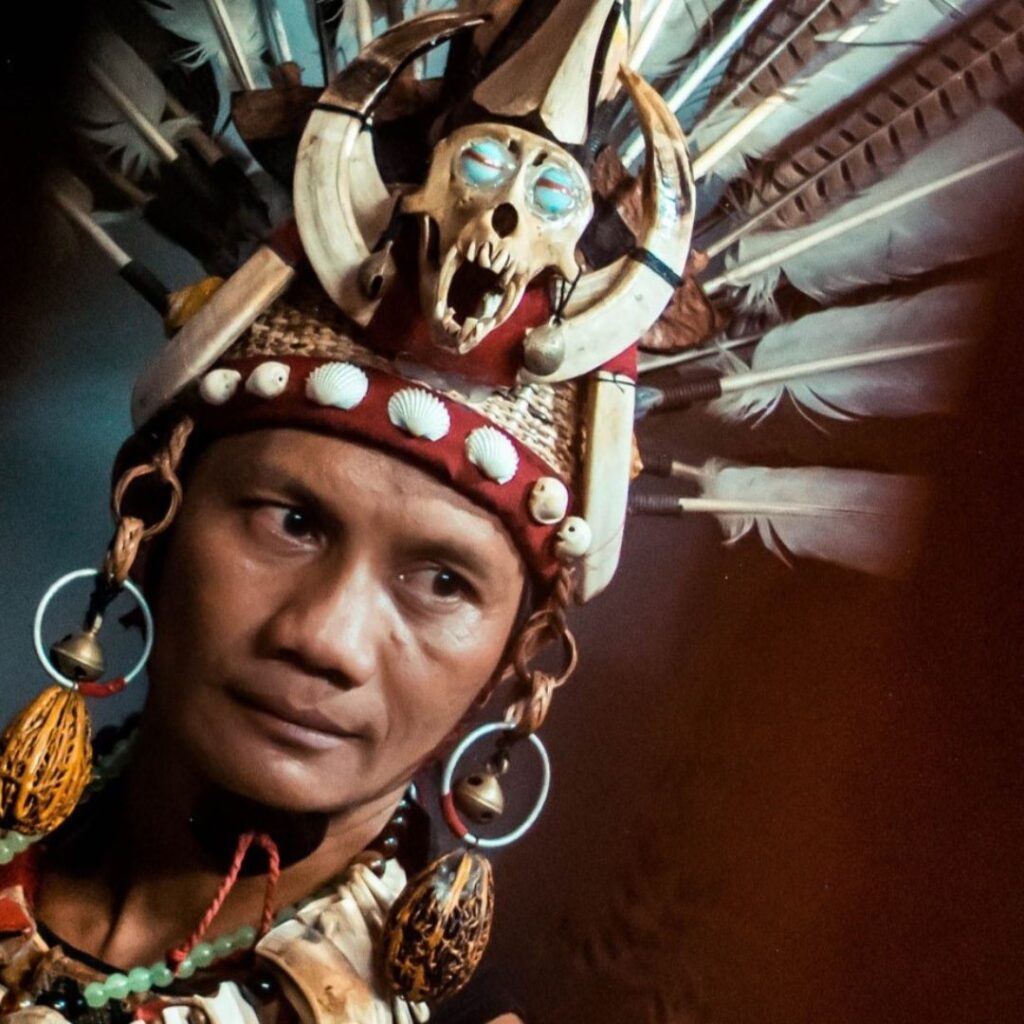
Traditional Dayak tattoos are not just body art; they are symbols of personal achievements, spiritual protection, and connection to the ancestral spirits. Tattoos are often used to mark milestones in life, such as coming-of-age rituals, victories in battle, or marriage. The tattoos, which often cover large portions of the body, are deeply personal and spiritually significant.

Experiencing the Dayak tribes of Borneo firsthand is a once-in-a-lifetime opportunity. Here are some tips for travelers who wish to engage with these fascinating communities in a meaningful and respectful way.


Spending a night or two in a Dayak longhouse is one of the best ways to immerse yourself in their culture. Many tour operators in Borneo, including Come2Indonesia, offer packages that allow you to stay with local Dayak families, participate in cultural rituals, and learn about their way of life.
If you visit during a festival like Gawai Dayak, you may have the chance to participate in traditional ceremonies and feasts. Be respectful of local customs, and remember that these rituals are deeply spiritual for the Dayak people.
When visiting Dayak villages, always remember that these are living communities with their own beliefs and practices. Be mindful of local customs, ask permission before taking photos, and approach the Dayak people with respect and humility.
To ensure that your visit benefits the Dayak people and preserves their culture for future generations, opt for tours that promote sustainable tourism. Look for operators like Come2Indonesia that support local initiatives, respect cultural boundaries, and contribute to the conservation of the rainforest and indigenous traditions.
Ready to experience the fascinating culture of the Dayak tribes?
Learn more about our exclusive tours and start planning your unforgettable adventure today!
Discover Dayak Tours
Sustainable tour
Our own boats
Tanjung Puting National Park
Local specialized crew
Night treking included
Sustainable tour
Deluxe Boat
Tanjung Puting National Park
Local specialized crew
Night treking included
Sostenible Tour
Our own boats
Tanjung Puting National Parl
Local specialized crew
Nice atmosphere
Born in Valencia (Spain), his professional career has always revolved around the tourism sector. He have completed a tourism degree and later specialized in digital tourism marketing.
After working in various travel agencies. In 2018, he was beneficiary of a scholarship from the Indonesian government to study at one of the most prestigious universities in the country. After specializing in the destination and having traveled and lived in several areas of Indonesia, he joins our team in early 2020.
Fernando is passionate about surfing and extreme sports. He is the first to sign up for a trip, always looking for new adventures!
SHARE THE POST WITH YOUR FRIENDS